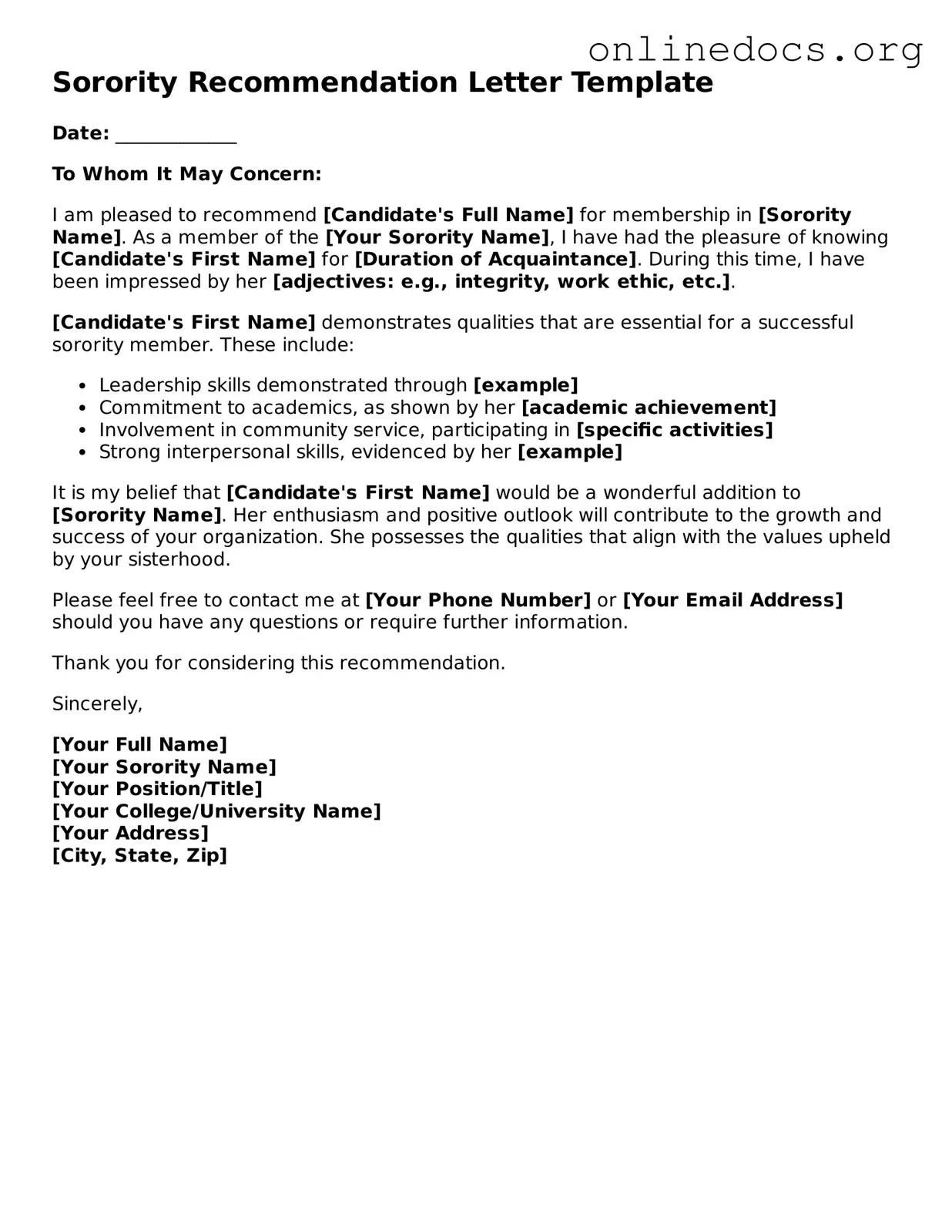Filling out a Sorority Recommendation Letter form can be a crucial step in the sorority recruitment process. However, many individuals make common mistakes that can impact the effectiveness of the recommendation. One frequent error is not following the specific instructions provided by the sorority. Each organization may have unique requirements regarding the information needed, and failing to adhere to these can lead to an incomplete submission.
Another mistake is using vague language. When describing the candidate, it’s important to provide clear and specific examples of their qualities and achievements. Generic statements do not paint a vivid picture and may leave the reader unconvinced of the candidate's suitability.
Additionally, some recommenders overlook the importance of timeliness. Submitting the recommendation letter late can hinder the candidate's chances. It is essential to be aware of deadlines and plan accordingly to ensure the recommendation is submitted on time.
Another common oversight is failing to proofread. Spelling and grammatical errors can detract from the professionalism of the letter. A well-written recommendation reflects positively on both the recommender and the candidate, while careless mistakes can create a negative impression.
Many individuals also forget to include contact information. This omission can make it difficult for the sorority to reach out for further questions or clarifications. Always provide accurate and current contact details to facilitate communication.
Some recommenders may not fully understand the importance of personal anecdotes. Sharing personal stories or experiences that highlight the candidate’s character can make the recommendation more compelling. These anecdotes can provide depth and context that generic statements lack.
Another mistake is being overly critical. While honesty is important, focusing too much on weaknesses can overshadow the candidate’s strengths. A balanced approach that highlights both strengths and areas for growth is more effective.
Many people also underestimate the value of enthusiasm in their writing. A recommendation that conveys genuine excitement about the candidate can stand out. A positive tone can greatly influence how the candidate is perceived by the sorority.
Lastly, some individuals may fail to tailor the recommendation to the specific sorority. Each sorority has its own values and culture. A recommendation that aligns with these aspects can resonate more strongly with the selection committee.
